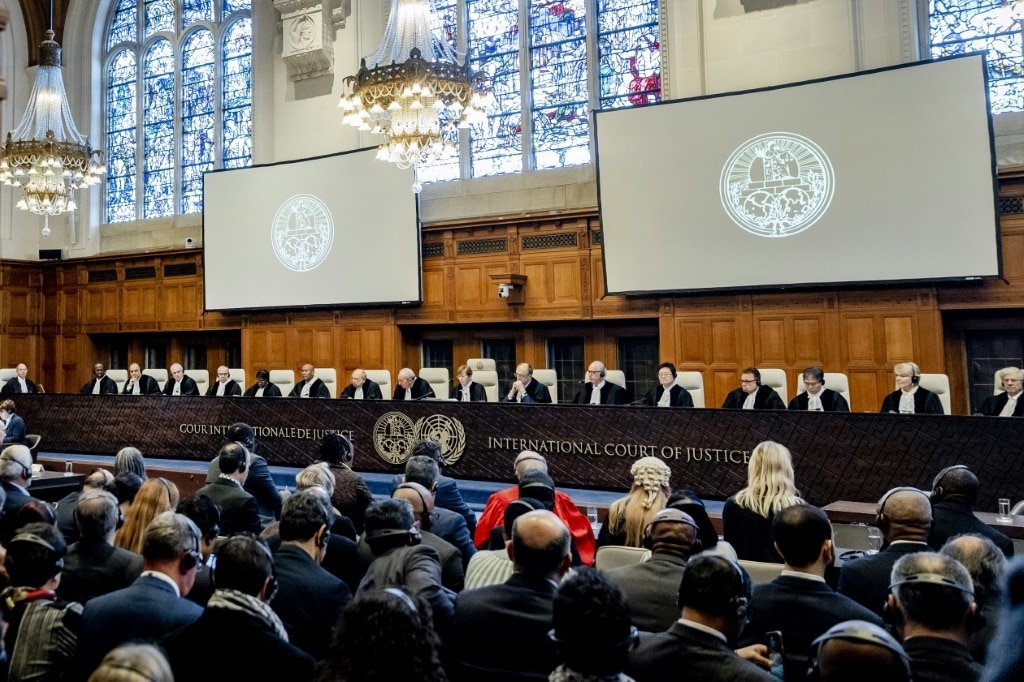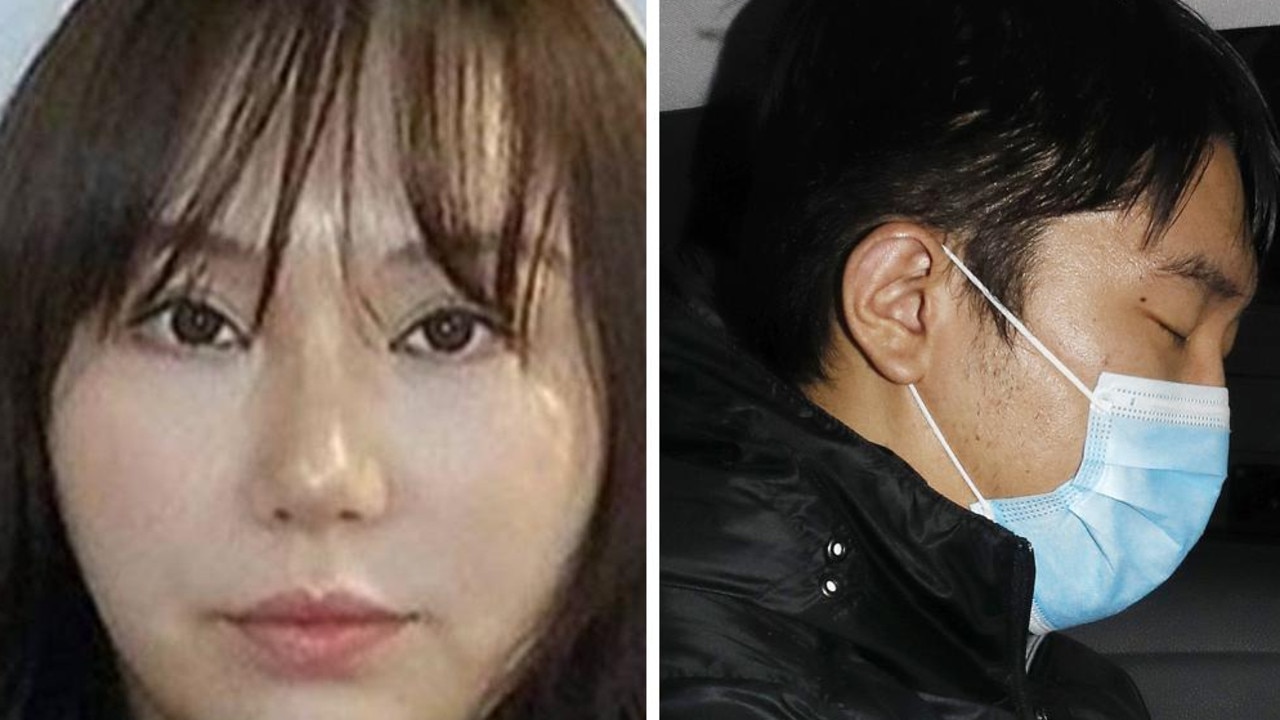Cop’s bombshell theory about Bondi killer revealed in coronial inquest
An officer in charge of the investigation into the Bondi massacre has delivered a bombshell theory about the killer.
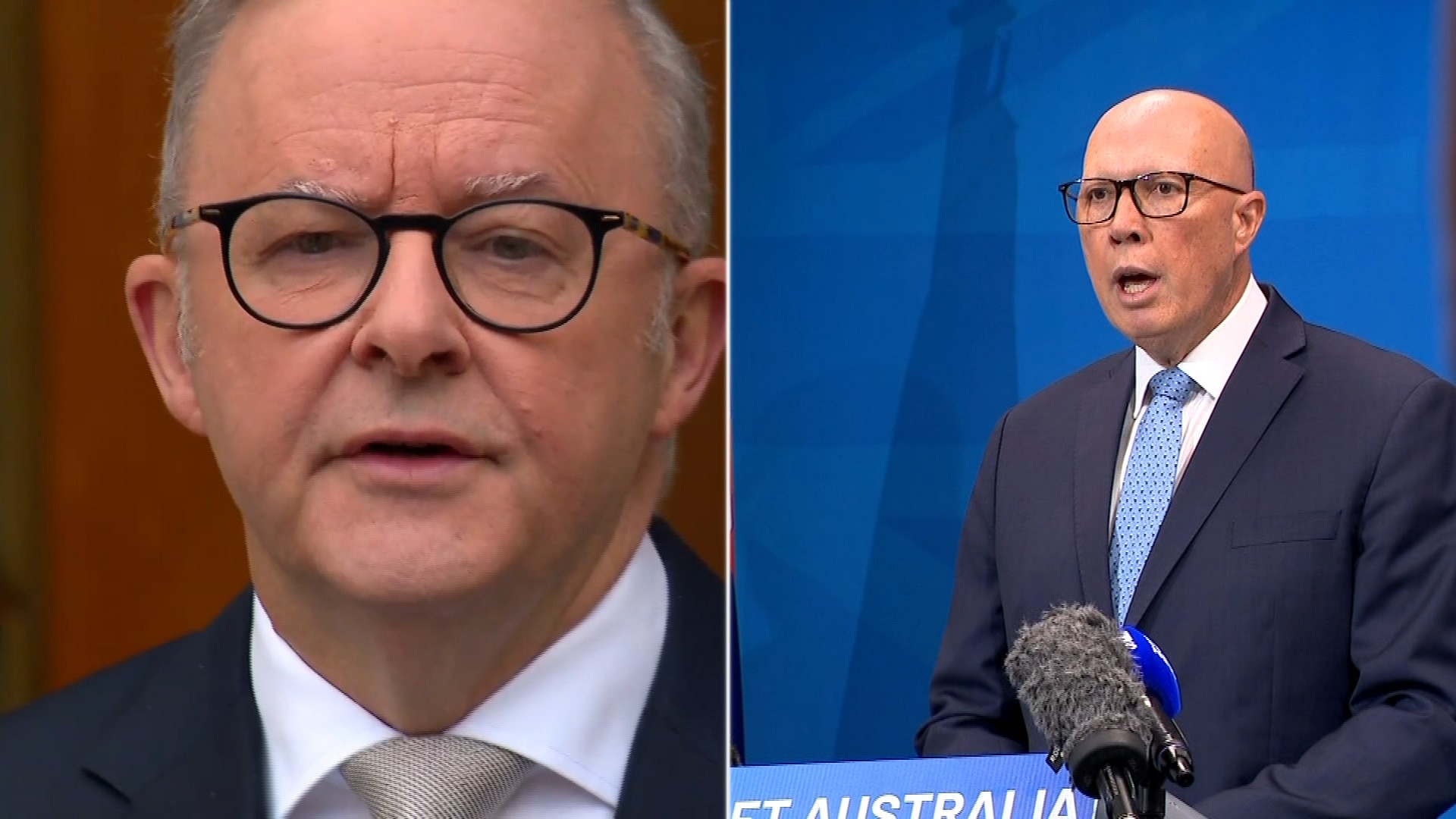
Breaking News
Don't miss out on the headlines from Breaking News. Followed categories will be added to My News.
An officer in charge of the investigation into the Bondi Junction attack says he does not believe the killer was targeting any particular individuals.
Joel Cauchi, 40, killed six people and injured 10 during a stabbing rampage at the Westfield shopping centre in Sydney’s east on April 13, 2024.
Dawn Singleton, Yixuan Cheng, Faraz Ahmed Tahir, Ashlee Good, Jade Young and Pikria Darchia were all killed in the attack.
Cauchi was shot dead by police during the incident.
A five-week coronial inquest into Cauchi’s “state of mind” both before the fatal attack and on the day, including whether he may have targeted any particular individuals or groups began on Monday.
Detective Chief Inspector Andrew Marks, who was appointed the Senior Critical Incident Investigator and Officer in Charge NSW Police Force following the attack, was pressed on how 13 women stabbed were all women.
Inspector Marks emphasised his belief he didn’t believe Cauchi was targeting women.
“No not at all, he, from the start of his attack, he moved very, very quickly, and he appeared to attack people that were not ready…didn’t know what was happening,” he told the court.
“He had an opportunity to stab numerous people and numerous females.”
He said he believed “whoever was in (Cauchi’s) way…was who he attacked”.
“I did not see anything to suggest he was going to at attack women…no evidence that I could find was an attack specifically on women,” he said.
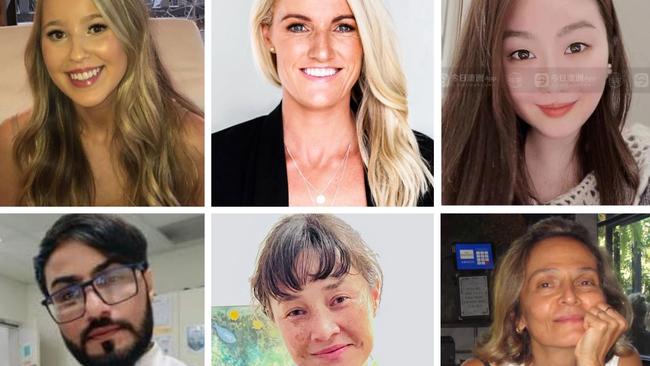
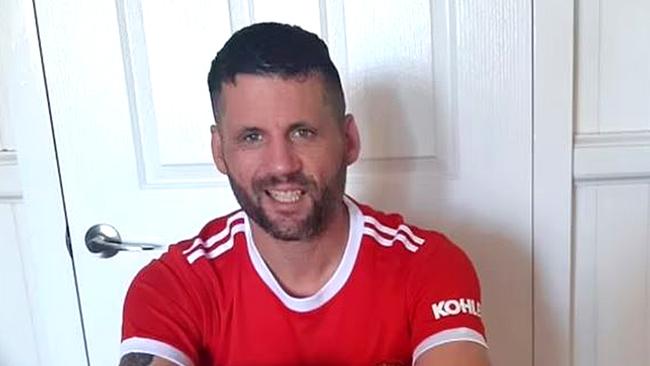
Killer’s disturbing Google searches
Cauchi made several searches on the internet related to the 1999 Columbine shooting that killed more than 10 people on the morning of the fatal attack at Bondi, as well as earlier searches on mass stabbings in Australia.
The court was told Cauchi had googled “what can neuroscience tell us about the mind of a serial killer” in October 2023, as well as self-inflicted deaths in Australian prisons and 21 famous serial killings, Ms Dwyer told the court, which Inspector Marks agreed with.
The following month he appeared to have searched for the last mass stabbing in Australia, the five best assault rifles in the world, and what things do people regret dying.
Ms Dwyer said Cauchi was assessed by a GP that same month in a “single care episode” where no acute psychosis episodes were identified at that time.
“But at that exact time he was searching this very dark material,” Ms Dwyer said, to which Inspector Marks replied “Yes, that’s correct”.
“And this is about nine months after Queensland police had an interaction with him where Joel’s mother said to the police that she believed he was unwell at the time but he didn’t know he was sick,” Ms Dwyer said.
Just days before the attack, Cauchi searched for “14 bands that serial killers love” and cancelled his NSW vehicle registration, which Ms Dwyer said demonstrated the “bizarre nature of his thoughts”.
She said wikipedia, google, reddit, spotify, netflix and twitter searches relating to killing, “or in some cases serial killing”, was further identified, which Inspector Marks agreed with.
The court was also told Cauchi had, on multiple occasions, searched “cop killer”.
Then, on the morning of the fatal attack, he made three searches about the killers of the 1999 Columbine shooting in Colorado, United States, about 8.47am
These were related to opinions on the killers, Eric Harris and Dylan Klebold, and parents statements.
It appeared no agencies, or Cauchi’s parents, were aware of these searches.
However Ms Dwyer said there was evidence Ms Cauchi had foreshadowed a deterioration of Cauchi’s mental state as early as 2019.
“Yes, she’d seen some warning signs,” Inspector Marks said.
Earlier, it was revealed that Cauchi made notes about checking out malls and “where to run” in the weeks leading up to the attack.
Counsel assisting the inquest, Peggy Dwyer, SC, said there were notes from January and February last year that suggested he was “planning a strike or attack”.
One note, dated January 25, 2024, read: “Call knife sharpener and confirm it doesn’t need sharpening for more use”.
She told the court police investigators reviewed Cauchi’s “distressing” phone records, including his web browsing and messages.
Web searches included serial killers, she said.
“Those records are distressing,” Ms Dwyer said.
“They demonstrate that Mr Cauchi was a person who was extremely unwell. Searches on his phone indicated that at least from around 2022 Mr Cauchi was preoccupied with weapons, violence and mass killing.”
Ms Dwyer also noted his behaviour was “very different to how he appeared to think when he was medicated”.
Browsing on his phone through late 2022 also suggested a “preoccupation with death and murder”, with bookmarked tabs on serial killers and also searches in relation to serial killers also found in the days leading up to the attack”.
This included a search about the Columbine shooters on April 13.
However, Ms Dwyer said there was “no direct evidence indicating any motive associated with his plans”.
Ms Dwyer said Cauchi was “far from the watchful eyes of his parents” who were previously able to keep him linked with mental health services, however by 2024 he was homeless and living in Sydney, detached from the mental health system.
“There was nothing to alert his parents to just how sick he had become,” Ms Dwyer said.
Missing email
On January 8, 2023, Queensland Police attended Cauchi’s parents home in Toowoomba - where he was residing at the time - after Cauchi called the police to accuse his father of stealing his knives.
His father had confiscated them because he was “concerned about his son having access to them”.
During the interviews with police, both Cauchi’s parents stated their son was mentally well and needed treatment.
They said he’d been slapping his face and appeared to be disturbed by auditory hallucinations.
“He really needs to see a doctor but he does not know he’s sick,” Ms Cauchi told police.
Cauchi told Queensland Police his dad confiscating the knives may lead to him becoming broke, living on the street, and put him at risk of being killed, however he was unable to articulate why these consequences may eventuate or why the knives were so valuable.
Evidence suggested police determined it wasn’t necessary to take immediate steps to have Cauchi assessed or arrested, though one attending officer later sent an email requesting that a follow up occur for Cauchi’s mental health.
“That didn’t happen, it appears that an email was missed,” Ms Dwyer told the court.
‘Under satanic control’
The inquest was told Cauchi was diagnosed with schizophrenia in 2001 and received care in the public health system in Towoomba from 2001-2012.
He trialled several different psychotropic medications during that time, and the court was told it appeared he may have had treatment resistant schizophrenia based on the view of experts.
He was later also diagnosed with Obsessive-compulsive disorder.
He continued to use the psychotropic medications in the public health system, and in 2012 he was discharged from the public health system to a private psychiatrist in Towoomba, who he saw about once a month until February 2020.
He’d later expressed desire to decrease his reliance on medications, and in 2015 it was determined to reduce his dosage of psychotropic medication, which was supported by a second psychiatrist.
By June 2019 he’d ceased taking all psychotropic medications.
The court was told how Cauchi had fallen through the cracks in the mental health system on several occasions.
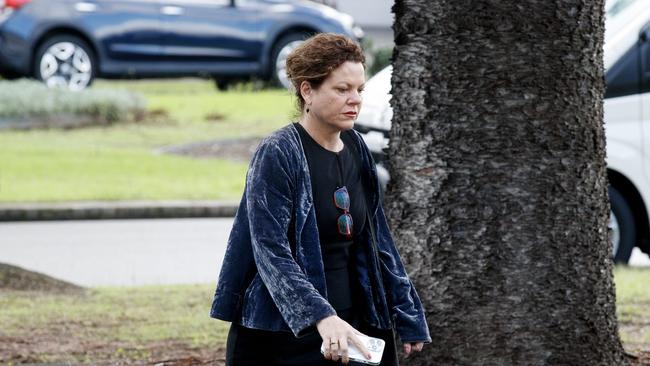
His case demonstrated “how quickly someone can fall out of the mental health system, and once outside it, the barriers to reintegrate them”, Ms Dwyer told the court.
“He was effectively lost to follow up from early 2020,” Ms Dwyer said.
In mid march 2020 Cauchi moved to Brisbane and attempted to join a skype session with his psychiatrist back in Towoomba, however, Skype wasn’t working, Ms Dwyer told the court.
Staff at the clinic knew Cauchi had moved to Brisbane and was “therefore no longer eligible for Skye appointments”.
The court was told Cauchi didn’t want to attend face-to-face appointments due to difficulty travelling to Towoomba, and Ms Dwyer noted this was “tragically” during the beginning of the pandemic, which also made travel difficult.
The private clinic then cancelled the appointment with Cauchi, and contacted him in regards to referring him to a GP in Brisbane.
However, he didn’t yet have one and told them he’d let them know when he did.
In the absence of a Brisbane GP, the clinic discharged him into the care of a Towoomba based GP.
Ms Dwyer said Cauchi’s mother had raised concerns multiple times during October 2019 February 2020 with the Towoomba clinic about her son being unwell and the risk of a possible relapse.
She expected evidence to show Cauchi’s mother had expressed concern her son was “again hearing voices and she had found some notes he made which suggested he believed he was under satanic control”.
His mother reportedly wanted him to again take medications, however, he wasn’t “keen” due to side effects he’d previously experienced.
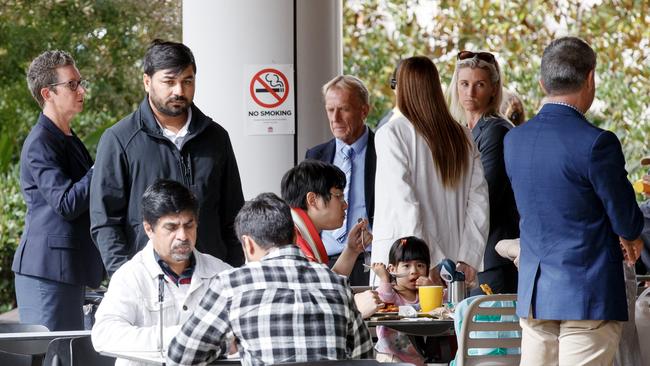
“The inquest will consider whether in circumstances where Mr Cauchi had already left Towoomba, it was appropriate to discharge him into the care of a Towoomba based GP instead of a bris based GP…and whether or not that clinic properly took into regard the concerns that had been expressed by Mr Cauchi’s mother over a period of months,” Ms Dwyer told the court.
There was no evidence to suggest he attended the Towoomba GP.
In summary, Ms Dwyer said Cauchi had moved from Towoomba to Brisbane, wasn’t taking any antipsychotic medication, and there were no specific plans that could be found for follow-up of mental health care.
She said he’d left behind his support network in Towoomba and was “in effect on his own”.
“After he ceased receiving treatment…the available evidence indicates that he received limited mental health care, whether from a GP, psychiatrist or anybody else.”
She said evidence suggested Cauchi’s mental health condition was “not effectively treated or managed from that time on”.
Ms Dwyer said there was sporadic, one-off contact with health professionals following 2020.
“Your Honor, the inquest does not seek to stigmatise people living with mental illness,” Ms Dwyer said.
“We know most people living with schizophrenia will never commit an act of violence, let alone a serious act of violence.”
She also said evidence would show Cauchi’s parents had “loved and cared for him all his life” and were “absolutely shocked when they realised he had committed these terrible acts of violence and taken the lives of innocent people”.
His parents contacted police when they saw their son on television, and cooperated fully with Queensland and NSW Police.
A gun license application
The court was told Cauchi had seen two psychiatrists in Queensland about 2021 to request a short report in support of a gun license application.
Ms Dwyer said it appeared he was open about his mental health history with a psychiatrist in January 2021 when requesting the report, and that he told the psychiatrist he’d been asymptomatic since stopping medications.
He also denied any recent drug use, and told the psychiatrist he didn’t plan to purchase a gun, but that he wanted to practice shooting at a supervised gun range.
Cauchi was determined to be a low risk to himself and others and follow-up treatment was decided not to be necessary by this psychiatrist, who only saw him once.
Ms Dwyer expected evidence to show the psychiatrist sought information from Cauchi’s initial psychiatrist back in Toowoomba, and had written to Cauchi’s Brisbane-based GP to recommend he have six monthly reviews to monitor his mental state despite him being asymptomatic at the time.
However it was unclear whether those reviews should be undertaken by a psychiatrist, GP, “In any event, that recommendation didn’t result in any follow-up action,” Ms Dwyer said.
On January 20 of that year, the Brisbane psychiatrist gave a report in support of Cauchi’s gun license application, which Cauchi then submitted a few days later.
Following a further letter from the Brisbane psychiatrist dated February 19 - where it was confirmed Cauchi was at that stage a fit and proper person to be issued a weapons license - Cauchi was issued a state of eligibility by the Queensland Police Service Weapons Licensing Branch.
It was noted that this eligibility is not a weapons license, and doesn’t allow for the purchase of a weapon, but to accept someone to an approved pistol club under the weapons act.
Ms Dwyer said the interest Cauchi had shown in getting access to firearms with untreated schizophrenia raised questions about applicant scrutiny for firearms permits.
“The available evidence suggests that Mr Cauchi did not follow through with a gun license, and that is very, very fortunate, because the evidence on Mr. Cauchi’s phone and his internet searching suggests a very significant deterioration of his…health steadily from the time that he was unmedicated, and a significant deterioration around this time,” Ms Dwyer said.
No staff in CCTV control room when attack began
The court was told there were two staff members in the CCTV control room on level 4 on the afternoon of the attack, however, one had left about 3pm with his supervisor to undertake training on level 13.
This left just one staff member in the control room, who had been working since 6am and was rostered to continue until 6pm.
She left the room at about 3.32pm to go to the bathroom just metres outside the control room, meaning there was “no active CCTV monitoring in place” for the minute and forty seconds she was outside the room.
“It just so happened that exactly 40 seconds after…(she) left for the bathroom…Mr Cauchi attacked Ms Singleton,” Ms Dwyer said.
“And over the next 30 seconds, Cauchi attacked a further six individuals.”
She re-entered the control room at about 3.33pm, however, Cauchi had attacked eight people by then, three of whom later died.
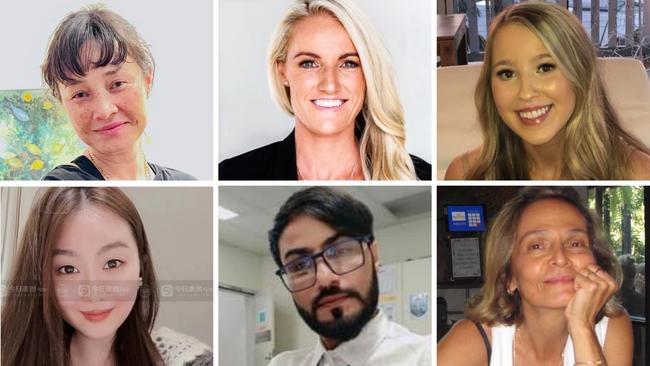
Ms Dwyer said it appeared the CCTV room being vacant at that time impeded Scentre Group’s response.
“Security staff were effectively behind the 8-ball - that is, they were then playing catchup to understand what was unfolding,” Ms Dwyer said.
The second security employee re-entered the CCTV control room by 3.36pm, however, all 16 people had been stabbed by then.
Ms Dwyer said available evidence suggested initial contact and information exchanged between the control room and emergency services took place about 10 minutes after Cauchi was shot.
Ms Dwyer also told the court an alarm or alert wasn’t activated until about 3.39pm, after Cauchi had been shot.
It also appeared that rather than using an alert that warned of an active armed offender, which Ms Dwyer expected evidence to suggest should have been pressed, security staff instead activated an evacuation alert.
Later attempts to correct this were unsuccessful because of the evacuation alert in place, Ms Dwyer said.
She said it also appeared appropriately warning customers and staff “did not occur promptly” on the day of the attack, and “did not occur in the way it should’ve done”.
The first public announcement was also not made until 3.52pm from the fire control room, which was located externally to the CCTV control room.
“I expect Your Honor will hear that one person from the control room from Level 4 was directed to go there…and to make an announcement, and that person did so but they made an announcement in relation to an evacuation rather than an armed offender,” Ms Dwyer told the court.
“That was almost 14 minutes after Mr Cauchi was shot by police.”
Ms Dwyer said the control operator tasked with making the announcement was “distressed and distraught”, leading to people being unsure whether she had been taken hostage or was making the annouincement “under duress”.
The PA told bystanders to evacuate now, while shop attendants told bystanders they should not evacuate.
Police also appeared to be under advice that people should remain inplace.
Ms Dwyer said the operator read “verbatim” from a script in a “distressed voice…in a way that may have led to confusion”.
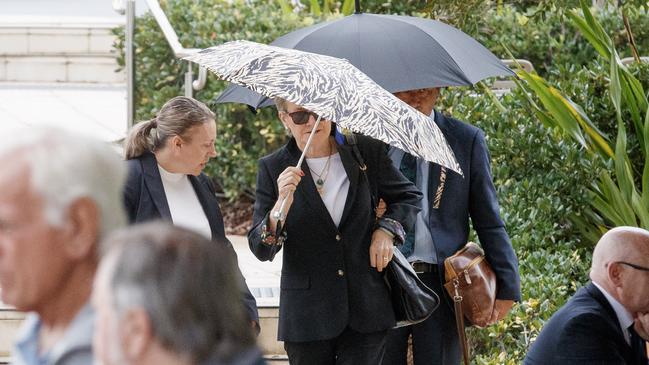
“Firstly Mr Cauchi had been shot about 15 minutes prior, so it’s not suggested that level of confusion at that stage…made a difference to who could’ve survived,” Ms Dwyer said.
“Secondly, clearly these are individuals who’ve never been through something like this before, so its natural that stress…is overwhelming, or might be.
“But it is important, in our respectful submission, to learn from the mistakes that have been made here.”
Many customers and first responders reported the alarms set off were extremely loud and had impaired communications.
Ms Dwyer said communications from the CCTV control room to both security staff and first responders might appear “ineffective”, but it was “in part exacerbated by issues” faced by NSW Police and NSW Ambulance first responders.
She said if Inspector Scott had not been on the scene so quickly there was a “real possibility” Cauchi’s attack could have continued on.
“I expect Your Honor will hear that there have been proactive steps already taken to remedy some of the issues outlined,” Ms Dwyer said.
She noted the involved parties were also open to hearing other suggestions.
Timeline of tragedy
On the morning of the attack, Cauchi was homeless in Maroubra.
He’d suggested to his parents he was in a hostel, however, it appeared he’d spent the night in nearby toilets or near them.
He made a number of stops that morning, including to a storage unit where he retrieved a backpack with the knife he would go on to use in the attack.
After entering and exiting the Westfield Bondi Junction a few times, he entered about 3.30pm and headed towards the Sourdough bakery.
“The first and youngest victim who was killed by Mr Cuachi was Ms Dawn Singleton. She was only 25 years old, and a much loved daughter, sister and fiance,” Ms Dwyer told the court.
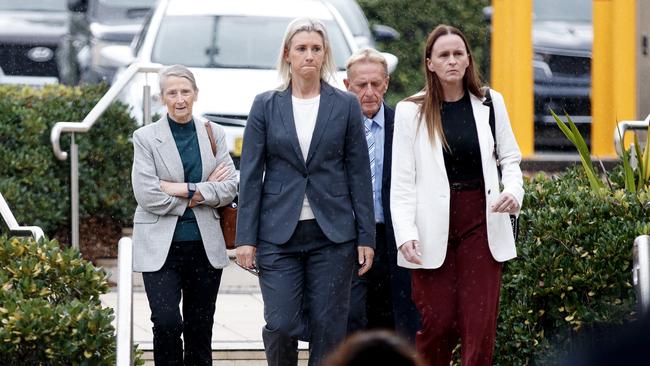
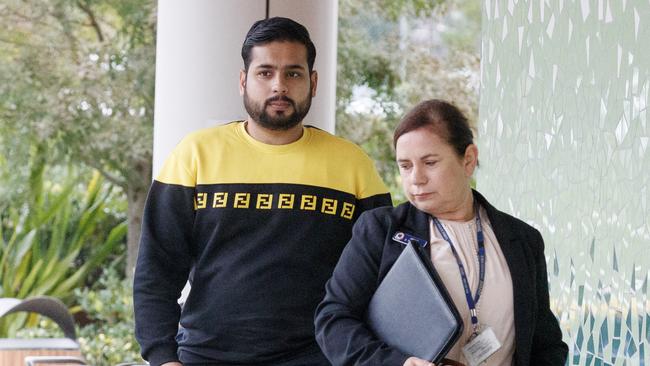
Cauchi stood in line behind Ms Singleton before he stabbed her.
She suffered multiple stab wounds.
Ms Dwyer told the court two civilians had been waiting for their coffee and “immediately ran to Ms Singleton, helping her to lie down and using a cloth to apply pressure to her wounds”.
Another man nearby helped Ms Singleton, while another woman applied first aid and callled 000.
The two men in line continued to help Ms Singleton, though they were “briefly interrupted” by Cauchi.
Ms Dwyer said the men “exposed themselves to danger” to stay with Ms Singleton, and stayed with her even after hearing the gunshots.
A man who had come out of the nearby Country Road had wielded a chair and told the two men “I’ll fight him off if he comes back”.
Ms Singleton was assessed by emergency services on the scene, but ultimately died.
Ms Young, a 47-year-old accomplished architect, was shopping with her daughter on the day of the attack.
She was stabbed by Cauchi once to the left of her back.
Ms Dwyer told the court her daughter used her phone to call her dad, who was also at the shopping centre.
“Her dad made his way to level four...during that time he encountered Mr Cauchi,” Ms Dwyer said.
“He warned others that Mr Cauchi had a knife before running to find his wife.
“He found Jade outside the RM Williams store and commenced CPR with assistance of bystanders.”
However, Ms Young also died.
Ms Cheng was 27 and in Australia completing a masters of economics.
On the day of the attack she’d finished an exam and had decided to go shopping.
The cause of her death was a single stab wound to central chest structures.
Ms Good, a former osteopath who had moved into a corporate role as executive years prior, was shopping with her child on the day of the attack.
She was pushing her daughter in a pram when she was stabbed.
“After Mr Cauchi attacked Ms Good it caused her to stumble away from the pram…and he then proceeded to stab her infant daughter,” Ms Dwyer told the court.
In a “tremendous act”, Ms Good was able to “save her child’s life”.
Inspector Marks later said Ms Good should be awarded a posthumous bravery award for saving her child.
Mr Tahir, 30, was employed as an ad-hoc security guard by Falcon, a subcontractor of Scentre Group’s subcontractor, Glad Group.
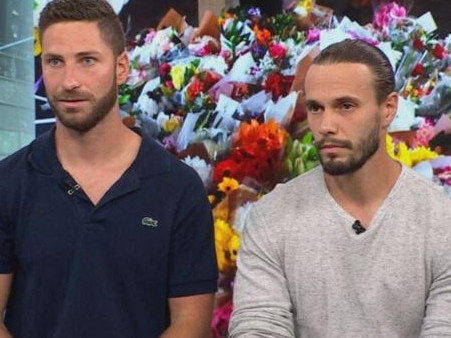
While responding to a notificatoin of a code black from another security guard, Mr Tahir was stabbed once in the abdomen by Mr Cauchi.
Emergency surgery was performed on him outside the centre however he was later pronounced dead.
Ms Dwyer said he was “thrust into an unprecedented” situation during his very first shift.
According to a witness statement from a Sourdough Bakery staff member, the woman “felt relief” when she saw Mr Tahir heading towards the cafe, noting he and his colleague appeared calm, which made her feel calm.
Ms Dwyer said she would remember him as a “hero walking towards Mr Cauchi and in danger”.
Ms Darchia, who arrived in Australia from Georgia in 2012, was stabbed multiple times.
She made her way into the Chanel boutique store where she collapsed, with bystanders reporting it was apparent her wounds were “extremely serious”.
The court was told she almost immediately lost consciousness, and later died.
Ten other civilians were also attacked by Cauchi.
“Some of them were very seriously hurt, and a number of them very nearly passed away,” Ms Dwyer said.
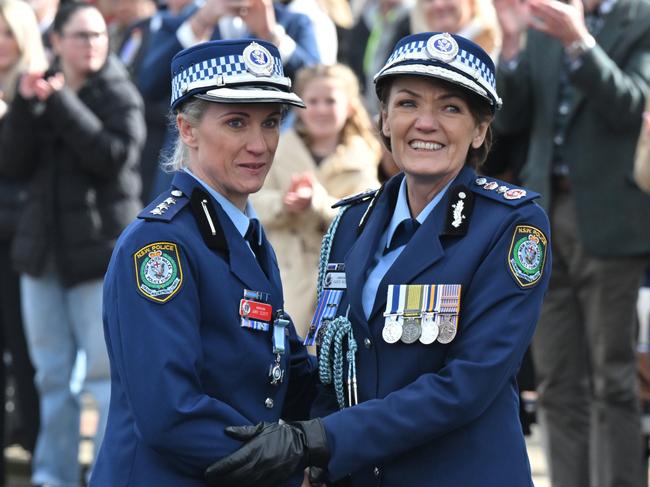
Coroner’s touching words as inquest starts
State Coroner Teresa O’Sullivan offered her condolences to the families of those killed in the Bondi Junction attack, as the inquest into the incident began.
Ms O’Sullivan began by saying there were “simply no words that can properly convey the magnitude of your loss”.
She recognised the “emotional fortitude of resilience” it takes for families of victims to participate so soon after the attack, and the one year anniversary.
“Our ultimate hope is to provide families and their loved ones and the broader community with some much need answers,” Ms O’Sullivan said.
“At the last directions hearing reference was made...to the potential for harmful media reporting of these proceedings, accepting that there is an important role for open justice in our society, I can only underscore in the strongest terms the need for empathy and sensitivity in the coverage of this inquest given the immense trauma that each family has suffered to date.”
Peggy Dwyer SC, assisting Ms O’Sullivan, said the lives of the victims, families and loved ones were “forever changed”.

“Some of the events are already well known. On the 13th of April, 2024 Joel Cauchi - then aged 40 - killed six innocent victims,” Ms Dwyer said.
“Five were women: Dawn Singleton, Jade Young, Yixuan Cheng , Ashlee Good, and Pikria Darchia.
“Mr Cauchi also killed a security guard… Faraz Tahir.
“It was his first ever shift at Westfield Bondi Junction.
“Mr Cauchi wounded 10 others before being fatally shot.
“Of those 10 people, two were men, and both of those men were very seriously injured.”
Hero cop Inspector Amy Scott and ‘bollard men’ to give evidence
Inspector Amy Scott, who the court heard “confronted Mr Joel Cauchi and shot him as he was armed and running towards her at speed”, will be called for evidence on Tuesday.
“Inspector Amy Scott is an important witness, no doubt evidence will be called from her tomorrow,” Ms Dwyer told the court.
“But Your Honor there is no question with respect to the propriety of her actions.”
Ms Dwyer called Inspector Scott’s professionalism “clearly beyond doubt”.
French construction workers Silas Desperaux and Damien Guerot, who Ms Dwyer said helped Inspector Scott find Cauchi and were “witnesses to the eventual shooting of Mr Cauchi” will also give evidence on Tuesday.
Haunting CCTV footage captured the moment Mr Guerot stood at the top of an escalator brandishing a bollard, just metres away from a knife-wielding Cauchi.
The pair last year told 9NEWS they followed Cauchi before Mr Guerot attempted to throw the bollard at the 40-year-old at the escalators, missing him.
They then found Inspector Scott, with footage showing Mr Guerot running behind her with a chair in the moments before she fatally shot Cauchi.
Mr Guerot and Mr Desperaux were quickly dubbed “bollard men” and widely praised for their bravery, with talks of granting Mr Guerot permanent residency quickly catching the attention of Prime Minister Anthony Albanese last year following reports his visa was due to expire.
Mr Albanese said Mr Guerot was welcome to stay in Australia as long as he liked while thanking him for his “extraordinary bravery”.
He said Mr Guerot was “someone who we would welcome becoming an Australian citizen, although that would of course be a loss for France”.
Mr Guerot and Mr Desperaux are both expected to give evidence in court during the first week of the coronial inquest into the fatal attack.
The inquest is expected to span five weeks from April 28 and May 30.
Inspector Scott has also been listed as a witness for the first week of the inquest.
The police officer single-handedly followed Cauchi through the centre and shot him dead.
A court previously heard she had asked him to stop and drop his weapon after he began to charge at her. She shot him twice when he failed to do so.
Cauchi’s parents later said they had “no issues with the police officer who shot (their) son, as she was only doing her job to protect others and we hope she is coping alright” in a statement released by Queensland Police last year.
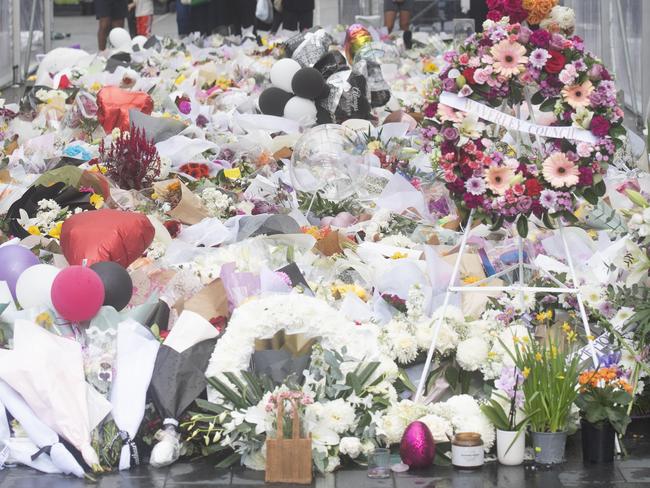
Whether the force used by Inspector Scott was “justified, reasonable and appropriate” will be examined in the inquest, as well as the response of NSW Police.
This includes when NSW Police first became aware of an active armed offender (AAO), their response to emergency calls, and communications between the police force, NSW Ambulance and staff from Scentre Group, who operate a string of Westfields across Australia including Bondi Junction.
Evacuation instructions given by NSW Police, any impediments to the response of the police force, and the organisation and implementation of a command structure at the centre are also listed on an issues list for the inquest.
NSW Police Detective Chief Inspector Andrew Marks APM, who was the senior critical incident investigator and officer in charge of the force at the time, will be called as a witness this week.
Forward commander and senior police officer Chief Inspector Christopher Whalley, NSW Ambulance critical care paramedic Christopher Wilkinson, a NSW Ambulance special operations team paramedic, and NSW Ambulance Director of Controls Centre Assistant Commissioner Brent Armitage — who were all present on the day of the attack — are also slated to give evidence.
The nature and timing of NSW Ambulance’s response to the attack is set to be explored, including the response to emergency calls, how and when they became aware of the events at Westfield Bondi Junction, any impediments to their response, and the declaration of the centre as a “hot zone”.
The adequacy of policies and procedures for AAOs and/or mass casualty events - including whether they were complied with - as treatment decisions and first aid provided, and whether paramedics had appropriate equipment to respond to a mass casualty incident will also be probed.
Other key issues to be explored in the five-week inquest include Cauchi’s state of mind before the fatal attack and on the day, as well as whether he targeted any particular individuals and groups.
The nature, timing, and adequacy of the response by Scentre Group and its subcontractors Glad Group and Falkon Security will also be examined in the inquest.
Other issues will include the general nature and content of the media response - including reporting and “activities to obtain information, images and/or footage in the immediate aftermath” - and the impact of the media reporting on the families of those who died.
Originally published as Cop’s bombshell theory about Bondi killer revealed in coronial inquest

